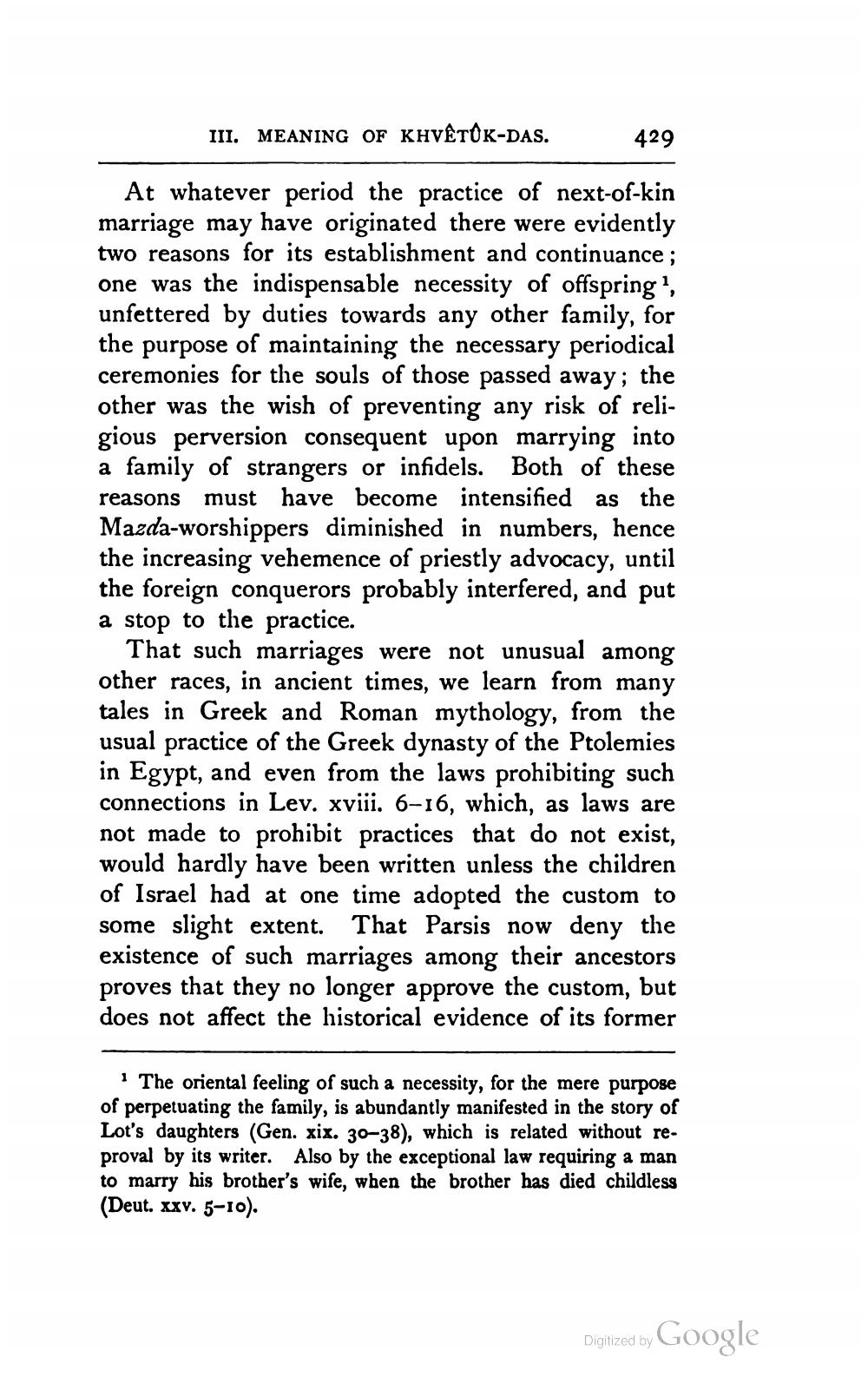________________
III. MEANING OF KHVÊTÓK-DAS.
429
At whatever period the practice of next-of-kin marriage may have originated there were evidently two reasons for its establishment and continuance; one was the indispensable necessity of offspring", unfettered by duties towards any other family, for the purpose of maintaining the necessary periodical ceremonies for the souls of those passed away; the other was the wish of preventing any risk of religious perversion consequent upon marrying into a family of strangers or infidels. Both of these reasons must have become intensified as the Mazda-worshippers diminished in numbers, hence the increasing vehemence of priestly advocacy, until the foreign conquerors probably interfered, and put a stop to the practice.
That such marriages were not unusual among other races, in ancient times, we learn from many tales in Greek and Roman mythology, from the usual practice of the Greek dynasty of the Ptolemies in Egypt, and even from the laws prohibiting such connections in Lev. xviii. 6-16, which, as laws are not made to prohibit practices that do not exist, would hardly have been written unless the children of Israel had at one time adopted the custom to some slight extent. That Parsis now deny the existence of such marriages among their ancestors proves that they no longer approve the custom, but does not affect the historical evidence of its former
1 The oriental feeling of such a necessity, for the mere purpose of perpetuating the family, is abundantly manifested in the story of Lot's daughters (Gen. xix. 30–38), which is related without reproval by its writer. Also by the exceptional law requiring a man to marry his brother's wife, when the brother has died childless (Deut. xxv. 5-10).
Digitized by Google




